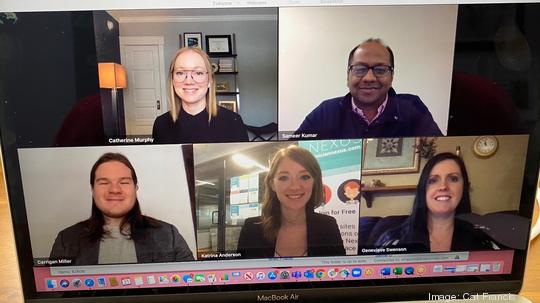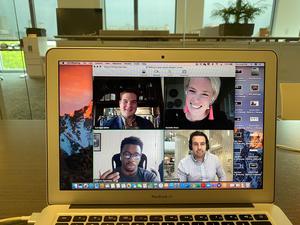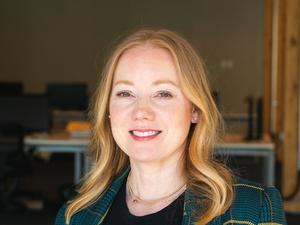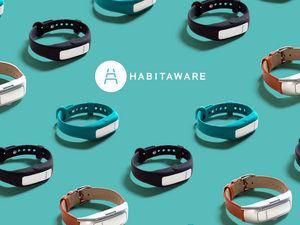
Minne Inno's October State of Innovation panel centered on health technology, a staple of Minnesota's startup economy that has been thrown into disarray by the Covid-19 pandemic.
The panel's participants were Catherine Murphy, COO of Zipnosis; Sameer Kumar, CEO and co-founder of HabitAware; Katrina Anderson, CEO and co-founder of Clinician Nexus; and Genevieve Swenson, COO and co-founder of Nice Healthcare.
The four companies represent the multifariousness of the local health tech scene, and each has dealt with the pandemic differently. It's been a boon for some companies; Zipnosis, a telehealth company, saw use of its platform grow over 1,700% in the opening month of the pandemic. But Covid-19 has created obstacles for Clinician Nexus, which connects medical school students with clinical rotations, because many medical schools have gone remote. And at Nice Healthcare, which provides home primary care, things are mostly the same.
HabitAware was tempted to pivot, but it didn't. The startup creates a bracelet that helps users manage body-focused repetitive behaviors like skin-picking or hair-pulling. HabitAware received attention earlier this year when users suggested it could be a way to keep people from touching their faces, one way to stop the spread of Covid-19. But HabitAware ultimately decided spending significant time on face touching would have been a distraction form its real mission.
"The biggest lesson for the business was to actually stay the course in times of uncertainty. There were a lot of things we could have done or could have pursued ... but we really just doubled down on focusing on our community." Kumar said.
Despite the pandemic, the panel agreed that venture capital money was still flowing to health tech companies. In fact, Nice Healthcare announced last week that it had raised a $5 million seed round and the Medical Alley Association announced earlier this month that Minnesota's health care startups have raised over $1 billion dollars so far in 2020.
The money is still flowing, but venture capitalists have changed their approach and view themselves more as potential partners, Anderson said. While Clinician Nexus isn't currently working on a funding round, she's been approached by investors anyway, a sign that investors are interested in being part of a project in addition to making money.
"Venture capitalists are getting a bit more intelligent [about] sourcing. They're kind of being pushed by the community to reach out and think differently about their sourcing. And I appreciate it, because it positions founders to be change-makers and not people that need capital. They're people who need capital to make change," Anderson said.
The increased attention on health care isn't a surprise, Swenson said. The growing cost of health care is acting as an anchor on the American economy, so innovative solutions that can reduce the cost of care are very welcome. The pandemic has also brought the importance of good health care to the front of many people's minds, especially younger generations.
"I do believe the pandemic is going to push [young people] to take a bigger interest in their health and health care policy. In turn, all of that should make investors a lot more interested even if they maybe haven't delved into the health care space before," she said.
And there will be an increased demand for high tech solutions because the health care industry, which is normally notoriously slow-moving, has changed dramatically in the past year.
Telehealth is an obvious example. While many insurers once didn't reimburse telehealth visits at the same rates as they did in-person visits,they do now due to Covid-19 to reduce office visits. Many insurers now signal that they will continue to support telehealth once the pandemic has ended. It's one example of permanent changes caused by unprecedented times, Murphy said. "Those barriers have been broken down, and hopefully not temporarily."








